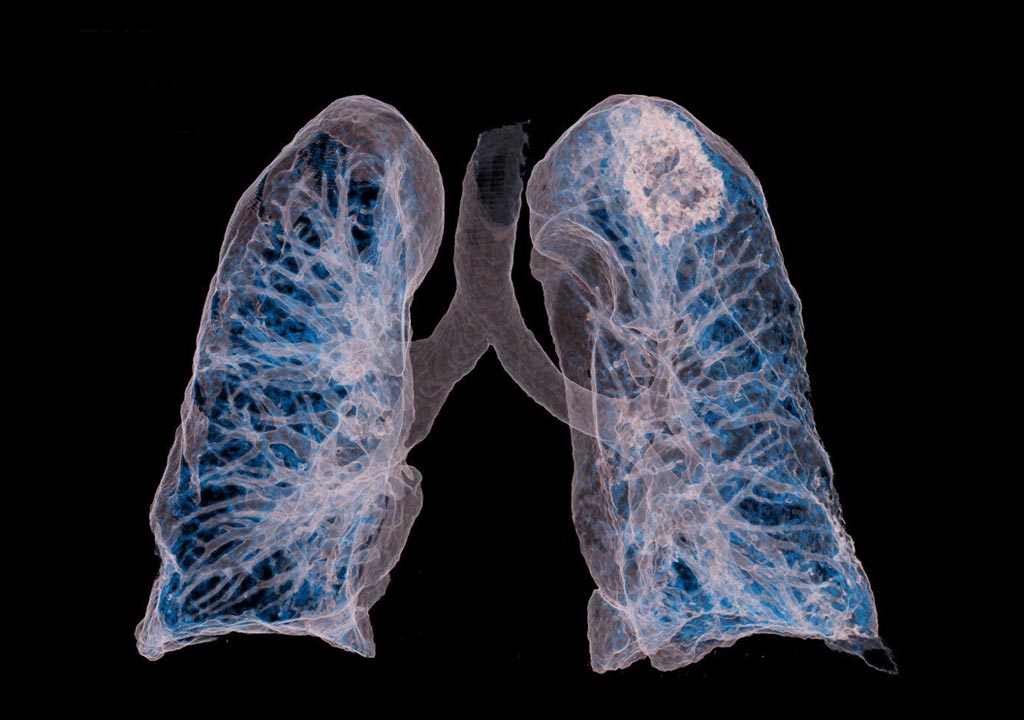CT Scans Prove Highly Accurate in Diagnosing COVID-19 Pneumonia and Predicting Death or Need for Intubation
By MedImaging International staff writers
Posted on 05 Jul 2021
In a new study involving more than 10,000 patients, researchers found that chest computed tomography (CT) was 80% accurate in diagnosing COVID-19 pneumonia and predicting death or the need for intubation.Posted on 05 Jul 2021
Given the conflicting data regarding the diagnostic performance of CT for COVID-19 pneumonia, the researchers undertook the STOIC (Study of ThOracic computed tomography In COVID-19) project that aimed to build a dataset of at least 10,000 CT scans from individuals with suspected COVID-19 pneumonia, evaluated during the first wave of the SARS-Cov-2 pandemic in France. The project involved 20 French hospitals that were equipped with multi-detector CT scanners, allowing volumetric high-resolution CT acquisitions of the whole thorax. CT acquisitions were performed without contrast administration except when pulmonary embolism was suspected as a confounding diagnosis to COVID-19 pneumonia at presentation.

Image: CT Scans Prove Highly Accurate in Diagnosing COVID-19 Pneumonia and Predicting Death or Need for Intubation (Photo courtesy of Siemens Healthineers)
Eligible subjects presented at the emergency departments of the hospitals involved between March 1st and April 30th, 2020 and underwent both thoracic CT and RT-PCR for suspected COVID-19 pneumonia. CT images were read blinded to initial reports, RT-PCR, demographic characteristics, clinical symptoms, and outcome. Readers classified CT scans as positive or negative for COVID-19, based on criteria published by the French Society of Radiology. Multivariable logistic regression was used to develop a model predicting severe outcome (intubation or death) at 1-month follow-up in subjects positive for both RT-PCR and CT, using clinical and radiological features.
The researchers found that using predefined criteria and RT-PCR as the reference standard in 10735 subjects with suspected COVID-19 pneumonia, CT diagnostic accuracy for COVID-19 was 80%, which increased to 86% after five days of symptoms. The extent of pneumonia at CT (OR, 3.25) was the best predictor of severe outcome (intubation or death) at one month. The researchers also found that CT diagnostic accuracy was not influenced by reader experience. Thus, the study concluded that using pre-defined criteria, CT reading is not influenced by reader’s experience and helps predict the outcome at one month.




 Guided Devices.jpg)









